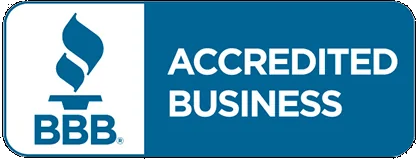

Understanding Mortgage Insurance: A Comprehensive Guide
Learn why mortgage insurance is required for low down payments and how understanding the types can help you make informed homebuying choices.
If you're considering purchasing a home and your down payment falls short of the Conventional 20% down "benchmark", Private Mortgage Insurance (PMI) might become a prominent term in your vocabulary. In this blog post, we'll dive into the intricacies of PMI, shedding light on its purpose, functioning, and implications for prospective homebuyers like yourself.
What is Mortgage Insurance?
Private Mortgage Insurance (PMI) is a safeguard that lenders put in place to mitigate the risk associated with providing mortgages to borrowers with down payments less than 20% of the home's purchase price. In essence, PMI acts as a protective cushion for the lender in case the borrower defaults on their mortgage payments. It's important to understand that mortgage insurance is not designed to benefit the borrower; rather, it's a risk management tool for lenders.
How does PMI Work?
PMI functions as an added monthly cost that is integrated into your mortgage payment. This extra payment allows lenders to feel more secure about lending to individuals who are unable to put down a substantial down payment. By paying PMI, you essentially reduce the lender's exposure to financial risk, making it more enticing for them to approve your mortgage application.
What are the "Pros" of Paying PMI?
Lower Down Payment: PMI allows you to secure a mortgage with a down payment lower than the conventional 20%, making homeownership more achievable.
Faster Home Purchase: With PMI, you can expedite the process of buying a home, avoiding the need to wait until you save up a larger down payment.
Quicker Loan Approval: Lenders are often more inclined to approve loans with mortgage insurance since it offers them a safety net against potential default.
What are the "Cons" of Paying PMI?
Added Monthly Cost: PMI increases your monthly mortgage payment, which can strain your budget and impact your overall financial stability.
Difficulty in Removing PMI: Once your loan-to-value ratio (the amount you owe on the mortgage compared to the home's value) drops below 80%, you can request the removal of PMI. However, this can be a lengthy process, and until then, you continue to incur the added expense.
What are the Types of Mortgage Insurance?
- Private Mortgage Insurance (PMI): Typically required for Conventional loans when the down payment is less than 20% of the home's purchase price. PMI allows borrowers to secure a mortgage with a lower down payment, but it adds an extra cost to the monthly mortgage payment.
- FHA Mortgage Insurance Premium (MIP): This is required for Federal Housing Administration (FHA) loans. FHA loans are popular among first-time homebuyers due to their lower credit score and down payment requirements. The MIP includes an "upfront premium" and an "annual premium" paid along with the mortgage. In 2023 the FHA Upfront MIP was 1.75% of your "base loan amount" and an "annual" monthly premium of 55% for loan-to-values over 95%. Please refer to the detailed chart below for additional loan-to-value and loan term amounts.

- USDA Guarantee Fee: The USDA (United States Department of Agriculture) Guarantee Fee is a crucial component of the USDA Rural Development's Single Family Housing Loan Program. This fee serves as a financial safeguard for lenders and helps maintain the sustainability of the program, enabling rural homebuyers to access affordable mortgage financing. The fee is divided into two parts: As of 01/01/2023 the upfront guarantee fee for a USDA loan was 1.0% of the loan amount and an annual (monthly) fee of 0.35% of the loan amount. These fees are applicable to both home purchases and refinance transactions. The upfront guarantee fee of 1% is a one-time cost that borrowers must pay at the time of closing on their USDA guaranteed home loan. This fee is calculated as a percentage of the loan amount, but it's important to note that it can be financed into the loan rather than paid out of pocket. The exact percentage varies and is subject to change based on market conditions and government policies. In addition to the upfront guarantee fee, USDA guaranteed home loans also come with an annual guarantee fee, which is paid over the life of the loan. The annual fee is divided into 12 monthly installments and is included in the borrower's mortgage payment. Similar to the upfront fee, the percentage for the annual fee can vary based on market conditions and government regulations.
- VA Funding Fee: Veterans Affairs (VA) offers mortgage programs with their versions of mortgage insurance. VA loans only charge an upfront premium and have no monthly amount. The amounts vary based on service level, downpayment and subsequent use of your entitlement. The chart below was published by VA.gov and reflect amounts active as of April 7th, 2023. The majority of VA borrowers are subject to paying the funding fee. However, certain exemptions may apply to those with service-related disabilities. If you are eligible for VA disability or receiving it, you may not be required to pay the fee, even if you are on active duty or receiving retirement benefits. Additionally, you could qualify for exemption if you are the spouse of a deceased veteran whose death is linked to an incident or service-related disability. But bear in mind, exemption from funding fees is not automatic. You must apply and provide specific paperwork. Required documentation includes a Certificate of Eligibility (proving that you are an unmarried surviving spouse), a signed VA Form 26-8937, and/or the original copy of the VA notification of disability rating with documentation of your retirement income received for your service. After applying, the VA will evaluate whether you qualify for an exemption.



When Does Mortgage Insurance End?
The duration of mortgage insurance varies depending on the type of loan and the lender's policies. For Conventional loans, once your loan-to-value ratio drops below 80% using a NEW appraisal or 78% based on original purchase price, you may be eligible to request the removal of PMI. FHA loans require MIP for a minimum period, typically the life of the loan, unless you refinance out of the FHA. By paying a down payment of 10% or more on an FHA loan, you only need to pay mortgage insurance premiums for 11 years instead of the entirety of the loan. VA Mortgage insurance is only paid upfront and there is no recurring monthly amount however the USDA PMI (annual fee) will remain in effect for the duration of the loan. It will eventually reach zero once the mortgage is fully repaid.
In Conclusion:
Mortgage insurance is an essential consideration for homebuyers who are exploring low down payment options. It enables lenders to offer accessible financing opportunities, albeit with added costs for you as a borrower. Understanding the various types of mortgage insurance and their implications will empower you to make informed decisions while navigating the path to homeownership. As you embark on this exciting journey, remember to weigh the benefits and drawbacks of mortgage insurance against your financial goals and circumstances and how it will affect your monthly mortgage payment and contact Onshore Mortgage, LLC. with any questions you may have.

Latest Posts


Grant R. Menard MLO NMLS# 17308
CLICK HERE
Onshore Mortgage

Massachusetts Division of Banks NMLS#MB1995582
CLICK HERE
The information contained in this site has been prepared by an independent third party and is distributed for educational purposes only. This is designed to give helpful tips on the mortgage process and is not intended to give legal advice.
Information is considered reliable but not guaranteed. This is not a pre-qualification, pre-approval, loan approval or commitment to lend. We arrange but do not make loans.
© 2020 Onshore Mortgage, LLC. all rights reserved.


.webp)
